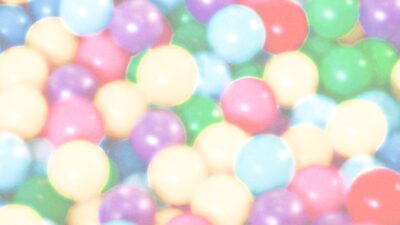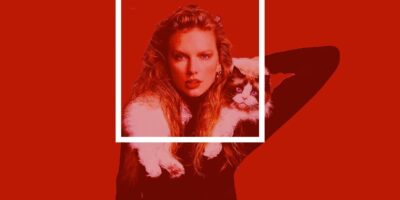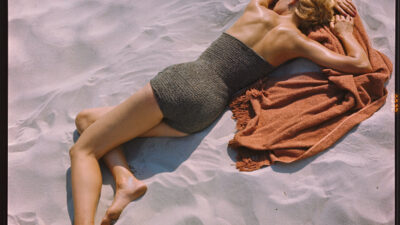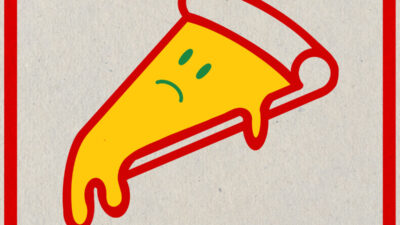Some bands are defined by a record label. Other bands add to a label’s masterfully and tastefully curated collection of releases. Minneapolis-based record label Forged Artifacts may fly quietly under the radar, but eight years into its lifetime, founder Matt Linden has put out records by some of the most exciting artists in indie rock. I had the pleasure of chatting with Matt about his start putting out music, the challenges of releasing a record during a global pandemic, and the formative impact that Plums had on my college beer-drinking experience.
What led you to the idea of starting a record label and is Forged Artifacts the first record label you’ve been involved with?
Matt Linden: It is the first label I’ve been involved with. I graduated with a print journalism degree, and so I did some music writing in college and thereafter a little bit. But then I wanted to get more involved with the physical side of the music I was listening to so that led me to starting Forged a little over eight years ago.
Are you originally from Minneapolis?
ML: Yup, I am. I grew up just west of the city and then spent time in St. Paul where I went to college, then lived in Minneapolis for six or seven years after, and I’m just outside of Minneapolis now.
So, were you involved with the music scene at all during college?
ML: Just as a fan. Just going to shows. We have some great venues here in the city. Obviously First Ave is a legendary venue downtown in Minneapolis so I spent a lot of time in the Mainroom and 7th St Entry, and then a lot of time at Turf Club seeing shows. I always was in the know. I read the local blogs and then just underground blogs and followed the music that way and went to as many shows as I could. I had a college radio show too, so I was able to get access to shows that way and that’s how I kept up and in the loop.
How did that involvement in that scene lead you to putting out your first record on Forged Artifacts, SLUMBER GIRLS by Nice Purse?
ML: So, I wanted to try and keep 50/50 with the label, as far as 50 percent in the Twin Cities and 50 percent wherever. I wanted to keep some of those local roots. The first string of releases were all local because I needed to build a name, build a bit of an audience before I felt like I wanted to branch out. When I went to Nice Purse I just had a name and an idea. They just kind of bought into that idea. You have to start organically that way. I was taking a chance on them financially putting out a record, but they were taking a chance on me. As we started we didn’t know each other at all. We were both taking that leap of faith and it’s easier to start locally because you can actually meet these people face-to-face instead of having a phone or an email conversation. You can be a little more connected to it. We can plan a release show together and be around each other.
How did you originally connect with them?
ML: With Nice Purse I had seen them a few times and they were just a buzzed-about, beloved Twin Cities band. They were the ones you’d always see in that DIY space around Minneapolis at the time. I loved them. I just took a leap of faith email. It was just a cold email. I gave them the run down of what I was thinking, and then said let’s meet up. We met at a coffee shop I know in Minneapolis. That’s a fond memory of just laying it all out there. I still remember it like it was yesterday. They took a chance and we put out the record, but they broke up soon thereafter which is always the dreaded thing when you’re a label. The worst thing that can happen is you put out an album and then they break up like a week later. That’s essentially what happened with them, so I still have plenty of Nice Purse records, but it did okay.
You’ve been putting out music since 2012. Eight years into running Forged Artifacts, can you think of a specific moment where you were, like, “Wow, this is a really good thing. I should keep doing this?”
ML: I would say there’s so many small things. There have been times where when you’re doing this yourself and it’s a small business and a passion project, you’re putting in a lot of blood, sweat, and tears for not a lot of financial gain. That’s not what it’s really about. If you’re getting into this, don’t get into it for the money. It should be for the art, the music, and just being a part of that. It can be discouraging, but every time it gets discouraging something happens. A band will get written about or it’ll get shared by Billie Joe Armstrong of Green Day. Those small wins are big. I really like getting feedback from the bands too. Just knowing that I’m having some sort of difference in their life as a band is a win to me. I have scaled back some of the time that I put in. Mentally I just can’t be working all the time. After a long day I can’t devote another 40 hours to Forged. It’s about finding a balance and after eight years I’ve been pretty good about finding that balance. I’ve given myself space from it, but those small wins like when a band gets written about in Pitchfork are unbelievable. It’s a really cool thing to see, and seeing bands get stoked about new people listening to their music is a win for keeping Forged around, I think.
Yeah, definitely. So now that Forged Artifacts has a roster that spans across the country, does running a label out of the Midwest impact how you approach or encounter new music from the different coasts?
ML: Not really. Now I have such an objective ear for music that I don’t really think of it in that way. A lot of people will ask what makes a Forged band and it’s just if I like it. What’s on the label is just stuff that I’m into personally that I think is interesting and cool, and that I want to have a hand in. It’s really just whatever catches my ear that I’m into at the time. I just try and have something that I think will stand up years from now that I think is an important piece of music for people to hear.
So, I noticed you’ve put out music by Small Forward, who are a band I know from the local scene and from booking them through my college radio station. I’m specifically curious how that partnership between a label thousands of miles from me and a band that live, like, 10 miles from me came about.
ML: As it first started out, I started with local bands. From there they’re gonna say, “Hey, check out my friend’s band,” or “check out this band that we saw.” Once I built that up a little bit and I was meeting people, I had the Twin Cities pretty much tapped. Then I felt like I could start reaching out to bands I was seeing on blogs. I don’t do this much anymore, but opening up 50 tabs on Bandcamp you can just surf the tags and you find stuff that catches your ear. I can’t remember Small Forward specifically, but I worked with Ryan Pollie, and he moved from Philly to LA. Ryan started to be someone who was, like, “Hey, I heard about this new band,” or bands would hit me up and say they played a show with Ryan as kind of a way in. It becomes two degrees of separation between the roster. That’s how a lot of bands start coming to me and I don’t have to go out. It’s a lot of recommendations for working with bands that I’ve worked with previously. There are bands that have hit me up with a cold email, and sometimes it works out like that, but with the ones that come through another artist I’m more keen to check out their music. A lot of bands have been signed that way.
Say I was a band who wanted to release music on Forged Artifacts. What would you want me to know before submitting music to your label?
ML: It’s still pinned on my Twitter, but I wrote this long string of Tweets about submitting music to a label that went viral for me in a sense. It was something that I came up with early one morning on the bus to work. I got a submission email, and it wasn’t a very good one so I made this long thread.
I remember seeing that, yeah.
ML: Sometimes bands will directly reference it when they submit and say, “Here are all of the things that you wanted.” And I’m, like, “Cool I asked for it. Way to take those tips to heart!” I’ve gotten submissions every which way. A pet peeve is sending me a link with no subject or no information whatsoever. Not signed, just a link.
That sounds annoying.
ML: I immediately trash those unless I’m feeling curious that day. I like to get a feel for the art. I like to be able to see your art direction. If you have a feel for the band, and if you’ve thought about those aesthetics as a project because I think it is important. If you’re sending me a list of songs, I want to know if it’s pre-master or post-master. What am I listening to? Adding some of those contextual details. I really don’t need to hear it’s like this band on the label and that’s why you should be on the label because I already have those bands. I’m not looking for a copycat. Just be yourself and let me know what inspires you and this collection of songs and the theme of this record and let the music do the speaking for itself. If I dig it then we will continue the conversation.
So, you said you do this all on your own. Would you ever bring someone on to help run the label, or is this more of an introverted and personal endeavor for you?
ML: I take a lot of ownership over it. It’s one of those things where I’m, like, “Why would I have someone do something that I know how to do and I’m doing it fine?” Some of the work is tedious. Packing up 100 records is not fun, but it is rewarding to see 100 records and have them picked up at your house. To me it’s definitely a balance. It’s a lot of work sometimes, but it’s enjoyable too. I’ve had some college-age kids hit me up with their résumés and all that stuff asking to intern, but sometimes when you have a label set up like mine or a website you can’t really tell how big a company or an organization is. All the money goes back into the label to reinvest in itself and more bands, so it’s not like I could pay them anything and I don’t need free labor from someone. So for now until I’m completely overwhelmed I just do it myself. Ryan (Pollie) is on the website and I bounce things off of him. He’s kind of my pseudo-A&R and it’s really just because when I get a submission I would send it to him anyway so we could talk about it. He’s there in that capacity, but he’s just my buddy. He’ll talk to the bands sometimes and he’ll sometimes bring on a project that we work on together. We’ve done that a couple times, but that’s about it. I like to keep it in-house, and it’s a passion project that brings me a lot of personal responsibility and is rewarding for me.
Yeah, I’ve done a number of these Label Makers and for the most part it seems like people run labels as a solo endeavor. It just seems like a good way to kind of curate your own playlist that ends up being a physical catalog.
ML: It’s almost like I’m making a collection of my favorite music along the years. It’s amazing to look at my tape rack, and it’s almost filled now with all of my releases. Looking at that and realizing everything I’ve accomplished throughout the years with all of these amazing bands is so rewarding. That’s what I hope for, is that I leave behind a catalog that’s worth exploring.
If I may ask, as someone who’s looked into starting a record label and hasn’t been able to afford it at this stage in my life, how did you fund your early releases?
ML: I had a crappy post-college job for a couple years and I saved up something like $2,000. It’s a ridiculous amount when you hear it because some labels are putting down $10,000, $15,000, $20,000 a week to press vinyl, but when I just had Nice Purse it was, like, I’m just gonna press theirs and if it goes belly up it’s, like, “That’s a cool idea,” and then it’s over. But getting that, I had enough for the first release and a Big Cartel. I barely even had a website. It was just getting that first stuff off the ground. My friend did some graphic design for the first logo, and he did that for free. I just had friends helping me here and there just to get it off the ground, but it was kind of a bootstrap affair. I just saved up the pennies from my job until I had a little saved away and then put all that down on a vinyl pressing. And then I made that back and put it into another, and then I made that back and put it into another, and now it just kind of finances itself. I don’t pull anything out of it so it’s not like I’m paying myself a salary.
If you’re trying to do it in a DIY space where you don’t have a salary just start slow. Start with bands that you know personally that you can do those handshake deals with that aren’t super stressful. Put out 100 tapes with a band, get used to printing labels at home. You can cut corners. Get the bubble wrap mailers. You might have to pack 50 tapes on a Wednesday and that might take you a couple hours. You just put in that work. I try to cut corners wherever I can cost wise and keep it down, and it’s worked out.
Yeah, it seems like it. Is there a specific record you’ve put out that feels particularly special to you?
ML: Our first release by Nice Purse was seminal and it’s great. And then our fourth record by Prissy Clerks, BRUISE OR BE BRUISED, was a big one for us. They were a local band, kind of like a supergroup-y type of band in the Twin Cities. That was a big one for us early on. That was in, like, 2013 and we were named best local record label in the Twin Cities for City Pages. At that point I was, like, “Thank you, but can you wait two years”? It was a couple really buzzy bands to come out with. I had that, and Observer Drift, and Nice Purse, so they were really buzzy bands in the Cities. Plums was another big one.
Yeah, that EP basically soundtracked my entire freshman year of college. Honestly, it soundtracked a specific time when I started writing for Merry-Go-Round and got really into, like, the house show scene. My roommate and I were listening to it the other day and I almost started crying because it was such a formative record for me.
ML: In hindsight we put JEN out on tape, but we could have put it out on vinyl. We could put that out on vinyl tomorrow.
I’d buy it.
ML: They came to me. At that point I had 15 or 16 releases out and that was a cold email. They had no following, they weren’t playing any shows, and that just turned out to be an amazing release. “Parking Lots” has a life of its own and got shared so many places. It was on Danger Mouse’s playlist and popped up so many different places. It was really cool to see a band that was super lowkey, yet made this masterpiece of an EP. I talk to so many people, and Plums is really special to a lot of folks. That guitar sound was very much, like, that kind of year. Like, 2014 and 2015. Yes, it sounds like that era, but they are just leagues above so many of those other bands. They hit that perfectly on JEN, and that’s a really special release to me.
I remember my second week of college my roommate now and I were just sitting around drinking beer and he was, like, “Yo, have you heard this?” and I was, like, “Yo, I suddenly want to get way back into indie rock again.” That’s such a cool album.
ML: Yeah, I think it’s so special and the songs are just incredible. That’s top five for sure in FA’s history.
There’ve been some lowkey ones for bands that are super random and never played shows. I had this one artist, LIFER. He’s from Brooklyn and I don’t even know who he is. I asked for bio information for trying to pitch it, and he was, like, “No, just let the music do its thing.” A couple of singles did really well. The tape’s been long sold out, and I still don’t know who he is. I’ve talked to him a couple times since it came out, and he’s, like, “Whatever was made back from that release just put it in towards the next band.” He could very well be in a huge indie band. In his videos he wears this old man mask. There’s a video of him playing in this empty apartment, so he could very well be a famous musician. We just trade emails and I put that out because I love the music.
LAPD obviously was a huge release. That was our 11th one. Ryan’s one of my best buds now, and we connected through a blog. We started talking and trading music, and then ended up putting out that record. That got reviewed by Pitchfork and was just a big launch point for Forged in general, and for him and his career too.
A more recent one is Ahem’s record. An amazing band. Awesome people here locally, and we connected through Jordan Bleau. I just put out Jordan’s Split Fountain EP, and he’s the lead singer in that band, but he also produces a lot of the bands in town. I put out his first band GLOSS, and he was the drummer and producer in that band and ever since then we’ve just kept up a friendship and a working relationship. If he’s working on a new band in The Cities I know about it first and I get those songs first. One of those bands was Ahem. They’re a great band, great people. Awesome, shouty, Superchunk-y indie rock. We did two EPs and then they put out their full-length TRY AGAIN last fall. That was an amazing project and release.
Without going into too many more, Double Grave. Just gotta give them a shoutout. They put so much into this last record, and that was our third time working together. I’ve seen Jeremy play music for years because he was in Ego Death. That was the name of Double Grave before they changed their name. I’ve been seeing him around town forever. Jeremy and crew are awesome people in The Cities. You can’t say enough good stuff about Jeremy. He’s a great asset to the scene. Just a good way about him, plays kick ass music, but is also a good mentor for up-and-coming bands. Really happy for them and stoked to put out that record in these times that we’re living in.
Yeah, and I think the whole narrative about it being a record that came to life in a period of solitude and loneliness is really interesting. Obviously it was for non-pandemic reasons, but now that narrative is way more relevant to probably everybody who’s heard it.
ML: Yeah, it’s a really poignant record. I listen to it quite a bit. Sometimes when I put a record out I get burned out and need some time away from it, but I’ve been spinning Double Grave pretty regularly and these are the best songs that they’ve been out. It’s a good quarantine album. They would love to be playing out and I wish we could have put on a release show, but the time will come for it and I’m just glad everybody gets to hear it now.
I’m glad Merry-Go-Round and I have been able to help them get some press. Writing about music for four years, you deal with a lot of types of people and they’re one of the most enthusiastic and kind bands I’ve worked with. They’ve been fun to connect with online.
ML: It also goes a long way. I just want them to be stoked about their own music and to be proud of what they’ve done. If a band isn’t proud of what they’ve done, then it’s hard to have someone invest in you. It’s hard to get stoked about something that they aren’t themselves, but they aren’t that band. They’re very proud of this music. At the end of the day I want them to do well and succeed. The label relationship is really mutual and beneficial. I want us to uplift each other, and you can’t ask for a better band than Double Grave for that.
Yeah, definitely. I’m going to buy the record for Bandcamp Day because it’s a really good looking album. I saw the album on Twitter today, and thought it would look good in my collection.
My last question is, what three songs not released on Forged Artifacts should readers drop everything and listen to right now?
ML: “Loner” by Dehd, “Hollywood” by Pure X, and “Video Games” by Sufjan Stevens. “Video Games” is bomb. I love it.
















Comments